Naturactis Ø3, narrow dental implant
For single-or two-stage procedures, depending on the procedure’s healing needs, the Naturactis Ø3 implant has an internal Morse taper. Its 3mm diameter perfectly adapts this implant for central or lateral restoration incisors. Its cylindro-conical body and large thread depth makes it perfect for post-extraction surgeries.
Indications for use
- Lower central or lateral incisor restorations (mandible or maxilla)
- Reduced mesiodistal spaces
- Fine crests
- Post-extraction surgeries
- Immediate functional loading
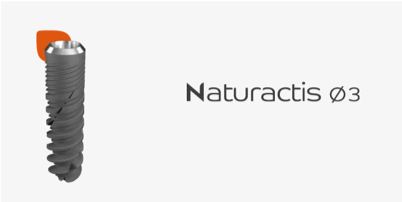
Single and multi-unit connections with the Naturall+ ø3 dental implant
Internal hexagonal conical connection
– Airtight prosthetic seal.
– Stable implant assembly and prosthetic piece.
– Stable implant assembly and prosthetic piece.
– Stable implant assembly and prosthetic piece.
– Stable implant assembly and prosthetic piece.
Same connection as the Naturall + ø3 implant
– Rationalization of the prosthetic pieces for a simpler exchange between the dental practice and laboratory.
Juxtacrestal placement
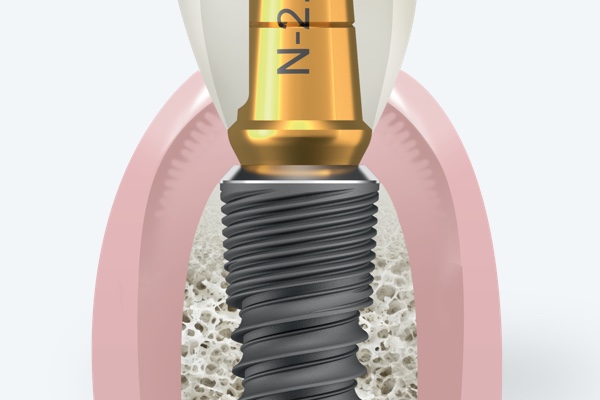
- Better visibility and access to the probe
- Easier and longer-term control during the sealing process
- Micro machining grooves in the neck with an Ra of 0.2μm: the collagen fibers are oriented to better attach to the mucous
Single and multi-unit connections with the Naturall+ ø3 dental implant
Cylindro-conical implant
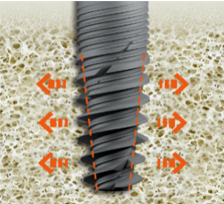
A cylindro-conical implant
Laterally condenses the bone to increase the implant’s primary stability
Variable thread depth, larger at the apex
Better apical anchoring in the low-density bone
A thread designed to provide maximum primary stability
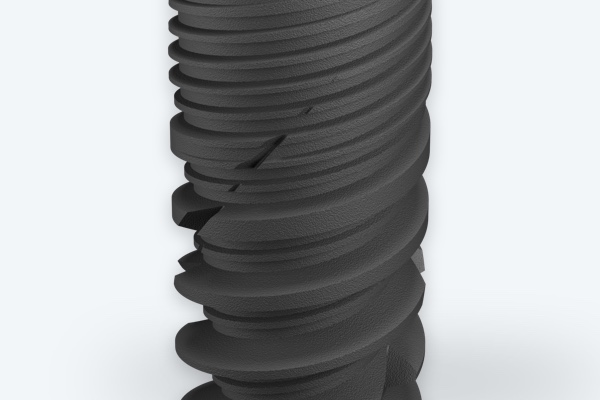
Implant microthread seamlessly connects with the main thread
- Tearless insertion into the cortical bone
- Stabilized cortical bone.
- Optimization of the primary anchorage.
- Greater resistance to axial loads.
- Reduced shearing stress at the bone/implant interface.

Double asymmetrical thread for
- Even distribution of chewing forces
- Excellent primary stability of the implant placement.
- Reduced heating of the bone and insertion time.
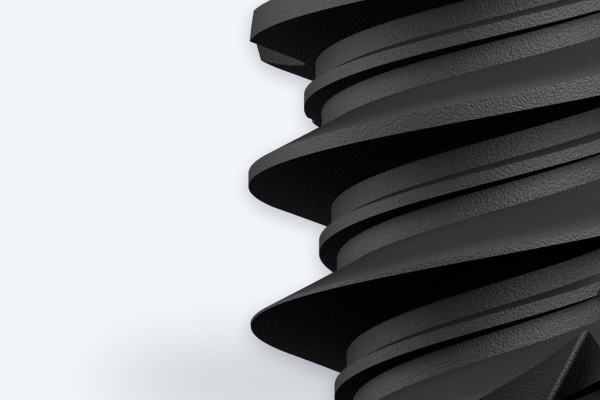
Central protrusion between the threads for
- 15% more surface contact with bone tissue
- Facilitates osteogenesis
- Activates cellular reconstruction.
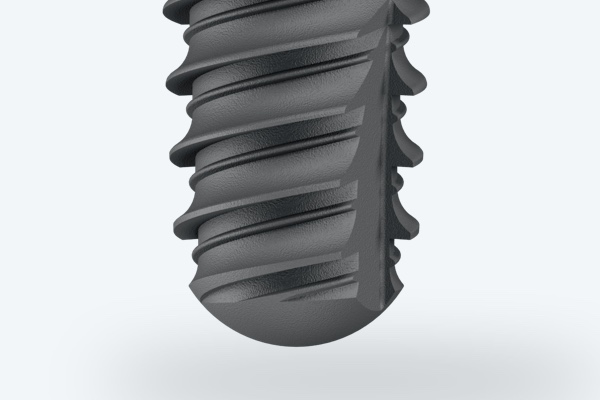
Non-traumatic and engaging apex
- Blade-shaped threads
- Larger blade depth on the apical part than on the body of the implant
- Optimal anchorage in the spongy bone.
- High self tapping capacity.
- Perfect for post-extraction surgeries
- Makes it easier to choose the implant axis.
STAE® tested surface quality
– Titanium oxide micro-sandblasting
– Acid etching with nitric and hydrofluoric acid
– 27 years of clinical experience.
– Acid etching with nitric and hydrofluoric acid
– 27 years of clinical experience.
Place the implant directly in the mandrel
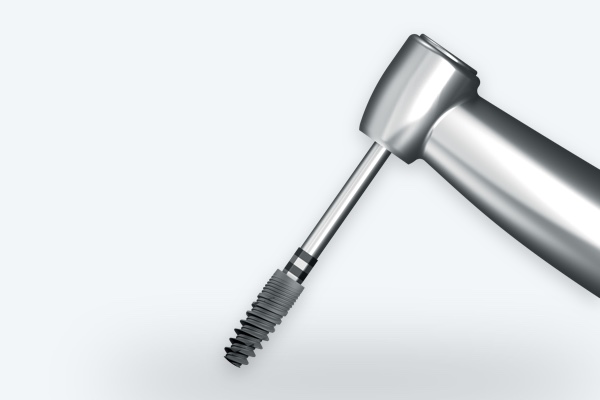
- Save time during surgery
- Better visibility when placing the implant and guiding the connection
- Gingival height indicated.
Your surgery accessories for the Naturactis dental implant
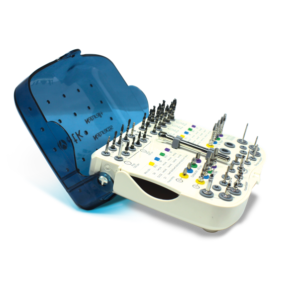
Standard surgical case
This case provides all the instruments needed for a surgical protocol and to manage all bone densities, for all lengths of the Naturall+ and Naturactis implants.
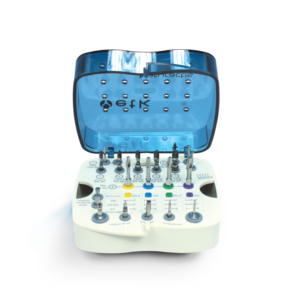
Mini surgery kit
This simplified kit offers a selection of instruments needed to place the 6- to 14-mm long Naturactis implants.
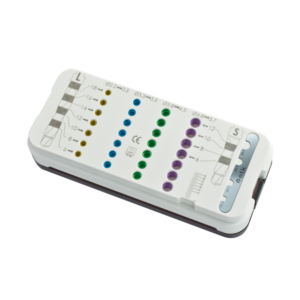
Stop kit
Universal kit: can be used with all ranges of implants (only on stepped drills).
– Pick-up stops directly from a contra-angle
– Color coding makes identifying stops simple, based on the diameter of the drill used.
– 28 stops for short and long drill bits included in the case Can be autoclave sterilized
– Pick-up stops directly from a contra-angle
– Color coding makes identifying stops simple, based on the diameter of the drill used.
– 28 stops for short and long drill bits included in the case Can be autoclave sterilized
Extraction kit: solutions for dental prosthetic and implant removal
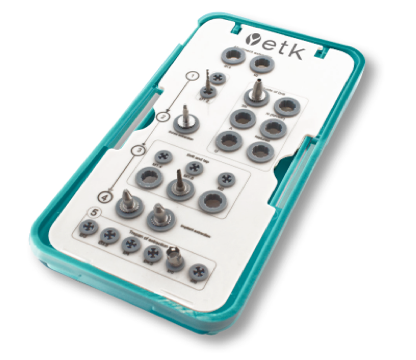
- Removal of abutments stuck in the implant
- Removal of broken screws in the implant
- Removal of an implant
- Extraction kits are available for all implant ranges.
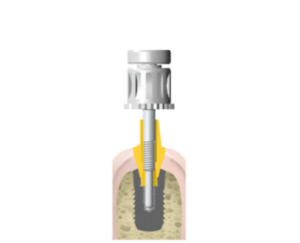
1 – Removal of abutments stuck in the implant
The abutment extractor easily removes abutments without stressing the implant
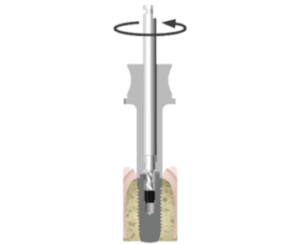
2 – Removal of broken screws in the implant
A drilling guide and a carbide drill with a high-powered titanium cut creates a small opening in the remaining screw piece. You then insert a self-blocking extractor in the broken screw bit to unscrew it. You can then tap it to alter the implant thread, if it’s damaged.
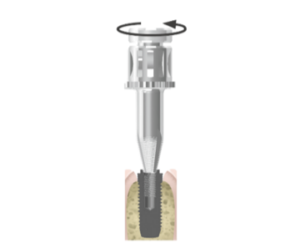
3 – Removal of an implant
The implant can be unscrewed using a self-blocking extractor. The bone around the implant can be perforated using trepans adjusted to the diameter of the different implants.


